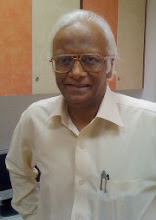THREE
MEN IN A BOAT!
SUNNY
THOMAS
Arun Jaitley does not relish making mistakes, unlike
some of his party colleagues. His statements seldom carry any faux pas that
needs clarification upon clarification. He commands respect across the country,
more respect perhaps outside the party than inside the party that has failed to
make the best use of his leadership qualities. Jaitley is Vajpayee in the
making, acceptable to all sections of society and ideological spectrum.
Akhilesh Yadav’s transformation from a gangster kingpin
to a mature statesman overnight deserves our attention. It speaks of his enormous
latent potential, and the advantage of a good education abroad and his innate
adaptability to UP politics. He, too, does not make any faux pas, nor meddle in
other people’s affairs. With UP in his pocket and with the right alliance,
Delhi is not out of reach for the young Yadav.
Rahul Gandhi is strikingly different from Jaitley and
Yadav in that the latter two are cautious players while the former is prone to
making mistakes. Yet Rahul commands more goodwill than Jiatley and Yadav put
together, though the goodwill has yet to be translated into votes. On Rahul
lies the onerous responsibility of keeping the hopes of his party alive, a
party that is fast disappearing from many parts of India. It will take a
miracle for Congress to retain a respectable margin in the next general
election – an economic miracle where prices are brought down to a comfortable
level for the middle class who determines their next rulers. Nor just prices
but jobs for the millions who pass out of educational institutions and teaching
shops, with hopes and fears. Not just jobs but sops for the poorest of the poor
living in squalor and misery, who could be cannon fodder for Maoists. If
Manmohan Singh skilfully fine-tunes his economics to make it middleclass-centric,
Congress can hope for a hat-trick in 2014 (however dismal the chances may look
now).
The three men have one notable distinction: they defy Didification, Ammafication and Modification – the three mine traps of
Indian democracy. All the three are very young, intelligent, articulate, and
have a future vision. If only these three men could meet and blueprint a common
vision for India 2022, it could signal a Renaissance in Indian politics. The
destiny of this nation cannot be entrusted to one political party alone,
however well-intentioned it may be. Thinking the impossible and creating the
impossible is what good politics is all about. And the people should be
constantly on their guard so that they don’t entrust their children’s future to
a pack of demagogues and power-hungry wolves!
Leander Paes is stabbed! Imagine this headline is
screeched at you by your favourite anchor of your favourite television channel.
You take it with a pinch of salt. No Indian in his right sense would venture to
assault a star about to participate in Olympics. Then how come we hear of
betrayal and back-stabbing of Leander Paes by his fellow tennis players? All we
know is that Mahesh Bhupathi and Paes have not been at peace with each other,
rather they were not eve on talking terms for several years but played their match
together. Their animosity is their private affair but broadcast to the nation
by TRP-hunting television channels. But what’s intriguing is the lack of enthusiasm
of two tennis aces – Rohan Bopanna and Sania Mirza, one of whom refused
directly and forthrightly while the other indirectly and forthrightly expressing
her wrath at the All-India Tennis Association which has not even bothered to
congratulate her on her recent victory but use players as pawns of its
convenience
The Tennis Association deserves congratulations for
upsetting four top players at one stroke! But one is reasonably certain that the
reluctance of the three players has less to do with sports and more to do with their
chemistry. Tennis buffs may recall how Monica Seles, at the height of her
career, was stabbed after a game but escaped death almost miraculously. Fame
and fortune invites not only bouquets but also knives!
A Presidential
ordinance asking Bhupathi and Mahesh to patch for Olympics would turn sports
into politics. Good luck to Peas, good luck Bhupathi, Bopanna and Mirza!
Mrs Malaprop is looking for a tutor to teach her
daughter geography so that she could get good marks in Maths. While sifting the
grain, she got a kidney stone which she removed herself and put it into the
dustbin. Her husband saw a gynecologist for his gastric problems. Her
omniscient younger daughter failed in science because her thermometer went up
due to fever. Even as you are reading this column, Mrs Malaprop is taking
myopia to get her vision rectified!



